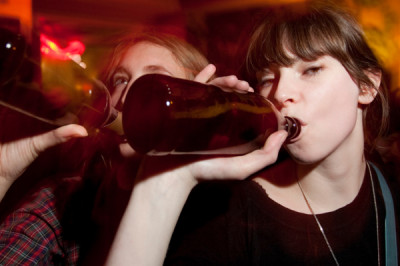When is Casual Drinking not Casual Anymore?
Alcohol is possibly the most socially acceptable drug since it is legal nearly everywhere, and its use is not simply tolerated, but promoted within many mainstream media outlets and social circles. Most people who use alcohol are inclined to define their drinking habits as casual. But casual drinking can easily turn into abuse before the drinker realizes they may have developed a problem. Here are signs some to look for if you fear you or a friend may be crossing the line.
Using Alcohol to Relieve Stress
Alcohol promotes a feeling of relaxation and loosens inhibitions. It is no wonder that many people use it occasionally to unwind and relax. A problem develops when alcohol becomes the primary thing a person turns to when faced when stress. People who abuse alcohol may find they start to want to drink before, during, or after any kind of stress-inducing event.
Alcohol Use Increases in Frequency
Casual drinkers may have alcohol at an occasional social event or on a special evening at home. Alcohol abuse is defined by a dependence on it, and if your alcohol consumption has increased in frequency, you may be developing a problem, especially if the idea of limiting alcohol causes anxiety.
Performance Suffers
Even casual drinkers can suffer from hangovers, but casual drinking occurs at limited times and in limited amounts, so work performance and family life don’t typically suffer. If you are starting to drink too much or too frequently, your performance in day-to-day tasks, and your work will begin to be affected. Alcohol affects both mood and health which means your family and social life can also suffer.
Continuing Drinking Even When You See the Negative Affects
When alcohol is becoming an addiction, drinking becomes more important than the negative affects it causes. You may start making excuses for why drinking alcohol is somehow necessary and ignore, or even deny the negative effects it has on your life. The temporary stress-relief it brings may feel even more desirable as your life situations worsen due to drinking, turning your addiction into a vicious cycle.
Finding Extra Excuses to Drink
Casual drinkers may enjoy having a glass or two of their preferred drink at a party, but do not spend much time thinking about alcohol at any other time. If you spend more time thinking about alcohol than you used to, stop and consider if you might be heading towards addiction. If you feel preoccupied with when you can have another drink, or how you can incorporate drinking into events you are attending, or whether the restaurant or event you are going to will serve alcohol, then it may have a stronger hold on you than you realize.
Developing Tolerance to Alcohol
Casual drinkers keep their alcohol tolerance on an even keel because they do not drink frequently enough to increase it. When the amount you used to drink no longer affects you and you need more to feel good, then your drinking is slipping from casual drinking to alcohol abuse.
The sooner you address a problem with alcohol, the faster you can get your life back. According to intervention services, for many with addiction, noticing or admitting a problem is the first and often most difficult step in recovery. Setting up an alcohol intervention is sometimes the only way friends and family can help loved ones see they need to change. There is always hope, and there are many people who can help. You don’t have to go through this alone, nor should you.
*Our content is not intended to provide medical advice or diagnosis of individual problems or circumstances, nor should it be implied that we are a substitute for professional medical advice. Users / readers are always advised to consult their Healthcare Professional prior to starting any new remedy, therapy or treatment. Your Wellness Group accepts no liability in the event you, a user of n-gage and a reader of this article, suffers a loss as a result of reliance upon or inappropriate application of the information.

Comments are closed.